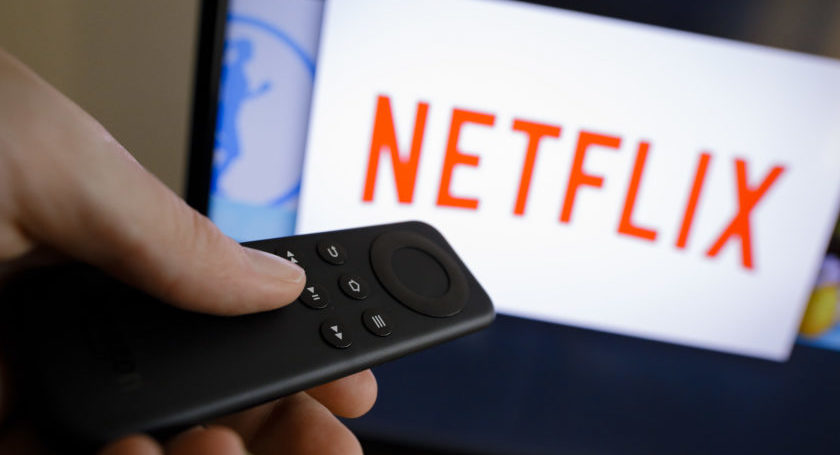M+E Connections

Netflix Execs: Company’s Not Afraid of Increased Competition, Disney-Fox Deal
Story Highlights
While reporting new milestones and strong results for its fourth quarter (ended Dec. 31), Netflix executives said Jan. 22 that increased competition and Disney’s planned purchase of a large percentage of 21st Century Fox’s film and TV assets stand to only help grow the total streaming market.
“I was as surprised as anyone else that Fox was willing to sell, and to have all those cable networks together in one bundle gives them tremendous pricing power against” multichannel video programming distributors (MVPDs), Netflix CEO Reed Hastings said during his company’s quarterly results webcast. “So, I could see the attractiveness” of the deal, he said, adding he expected the coming Disney direct-to-consumer streaming service will “be very successful because Disney has super strong brands.”
But Hastings was quick to add: “We don’t see it as a threat to us any more than Hulu has been.” While it’s “possible” the $52.4 billion deal could “trigger a wave of consolidations,” he said: “We try as much as possible to focus on our own consumers. How do we do the shows that we can do and grow our business? And these kind of big U.S. media company mergers are pretty peripheral to us.”
Also, while “everyone knows the cost of competition,” he went on to say: “The benefits are your competitors are challenger brands, so they don’t tend to follow your strategy if you call us the leader in streaming. And then they’ll try many things: separate sports, other flavors and if some of it works, then we get to learn from that. So, our view would be to let them try to innovate on those aspects and watch what they do and learn from consumers.”
Hastings conceded that he himself will subscribe to the Disney streaming service for his “own personal watching in the same way” he said that “many Disney and Fox executives also subscribe to Netflix and watch our shows.” He added: “We’ll all learn from each other and total streaming will grow faster because of the competition.”
But the proposed Disney-Fox deal still represents an “additional risk” for Netflix, Wedbush Securities analyst Michael Pachter said in a research note Jan. 23.
In launching the Disney-branded streaming service, Disney, after all, will end its distribution deal with Netflix for the subscription streaming of new Disney and Pixar releases starting with the studio’s slate of titles that will be released theatrically in 2019, including “Toy Story 4,” a live action version of “The Lion King” and its “Frozen” sequel, Disney CEO Robert Iger told analysts in August.
At the time, he said the “disposition” of Disney’s Marvel and “Star Wars” films were “not determined yet.” But Iger disclosed in September that Disney will be including its Marvel and “Star Wars” movies on its coming direct-to-consumer streaming.
But the new streaming service didn’t come as a major surprise to Netflix, Ted Sarandos, Netflix chief content officer, said Jan. 22. That’s “one of the reasons we entered into original programming” so aggressively, he said, explaining Netflix executives thought “if we got to the place where networks didn’t want to sell us their content in second windows that we would be replacing that [content] with our own – by creating our own original programming.”
The “big bet” that companies like Disney have to make is whether they can “make more money licensing their content to us or somebody else” or from their own services, and “that remains to be seen,” Sarandos said.
CBS, meanwhile, is “taking a middle road where it’s got all access with a bunch of shows but then they licensed” the new “Star Trek: Discovery” TV series to Netflix internationally, which “funds most of the production,” Hastings said. That show is only offered via streaming on CBS All Access in the U.S.
Netflix added 8.3 million registered subscribers in its fourth quarter – the most ever in a quarter for the company and up 18% from the record 7.05 million additions for Q4 the prior year, the company said in its quarterly earnings letter to shareholders. The result topped the company’s 6.3 million forecast “due primarily to stronger than expected acquisition fueled by our original content slate and the ongoing global adoption of internet entertainment,” it said.
The membership “outperformance…was broad-based,” Netflix said, pointing out U.S. memberships rose by 2 million (vs. its forecast of 1.25 million) to 5.3 million. Internationally, Netflix added 6.36 million memberships (compared with its forecast of 5.05 million). Q4 revenue grew to $3.3 billion from $2.5 billion, while profit jumped to $185.5 million (41 cents a share) from $66.7 million (15 cents a share).
In another milestone, Netflix hit the $100 billion market capitalization mark. Netflix shares were up more than 9% at $248.94 in early afternoon trading Jan. 23.









